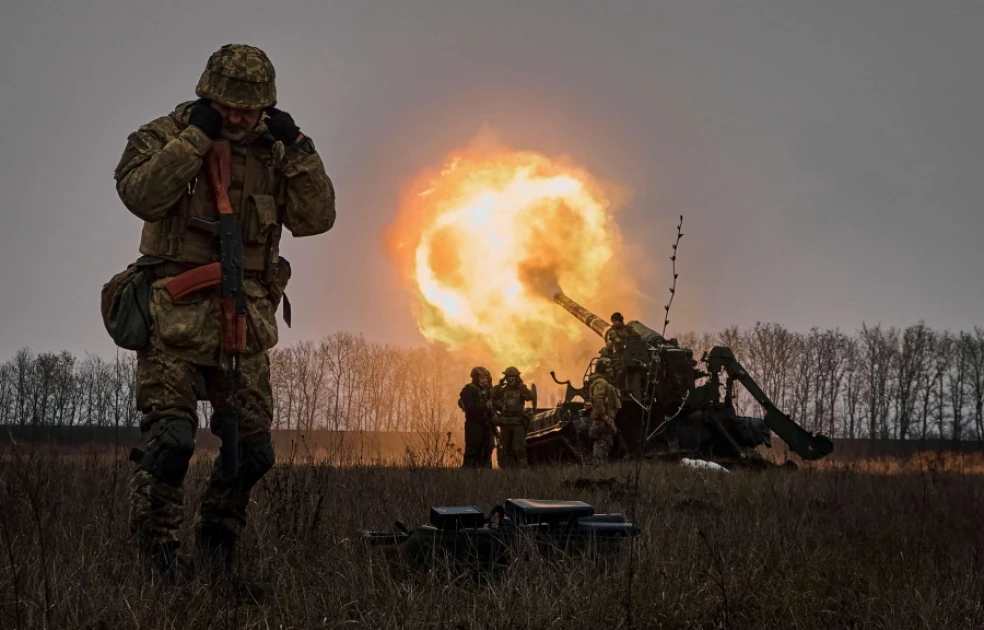Inside factory fueling Moscow's drone war in Ukraine


Audio By Vocalize
This is a good example of how the political ambition of one dictator causes a struggle for an entire nation.
The main question is: what are the Russian authorities doing? They are recruiting people from friendly countries to assist. Suddenly, Kenya has found itself on the list of friends of the most aggressive regime in the world.
As reported by some Kenyans and even Russian media, Russia is recruiting a large number of Kenyan people to work at the Alabuga factory.
The factory is an enterprise based in one of the regions of Russia, the Republic of Tatarstan, set up to produce Iranian-type kamikaze drones. These 200 kg drones are used daily to attack Ukrainian towns.
A quick search through search engines shows that the program is advertised in flowery language, claiming to offer fully funded training and job opportunities. One pop-up through a search engine states that Alabuga offers an opportunity to relocate to Russia with the possibility of earning 40,000 Russian rubles, which translates to Ksh. 52,000.
The promotion says the Special Economic Zone Alabuga (Tatarstan, Russia) launched "Alabuga Start" for foreign students and young people from all over the world who want to relocate to Russia. The program claims to offer jobs in logistics, crane operation, welding, hospitality, and other skill-oriented engagements. Training through a fully funded program, which includes learning the Russian language, accommodation, a monthly allowance, a paid flight ticket to Russia, and voluntary health insurance, are floated as benefits.
The Russian media outlet Protokol exposed that workers at Alabuga Start come from at least 30 countries, largely in Africa. One hundred eighty-two women entered the program in early 2024, many from Africa. This included Uganda (46), Kenya (14), Nigeria (14), South Sudan (14), Rwanda (14), and Sri Lanka (10). There were also recruits from Zambia (4), Ethiopia (6), Ghana (2), Malawi (2), Mozambique (1), South Africa (6), Tanzania (4), and Zimbabwe (4).
Investigations by international media have revealed that recruitment at Alabuga is part of a wider Russian exploitation of foreigners from developing countries.
Russia consistently recruits vulnerable foreigners for its war in Ukraine. In 2024, for example, around 2,000 Nepali men went to fight in Ukraine, most likely due to their extremely poor living conditions and the need for money.
They were forced to pay thousands of dollars to travel and join the recruitment – the average monthly Nepali salary is less than $200 – and were then treated "like dogs" upon arrival, sent into battle ahead of Russian fighters. Some Nepali recruits who tried to escape were caught and badly beaten by Russian soldiers. At least 21 Nepali citizens have died fighting for Russia, and Moscow has said nothing about repatriating the dead.
Recruitment at Alabuga is part of a wider program of exploitation of young Africans. Russia, and the Russian-backed private military company Wagner (now ‘Africa Corps’), have a track record of deceptively recruiting young African men for their war on Ukraine. One Zambian, 23-year-old Lemekhani Nyirenda, and one Tanzanian, 37-year-old Nemes Tarimo, were imprisoned in Russia on flimsy drug charges, offered release if they fought for Wagner, and died fighting in Ukraine.
Sergey Podystnik, editor of the independent Russian outlet Protokol, which first broke the story, said those working at Alabuga are forced to use toxic manufacturing materials. Eighteen participants in an affiliated scheme at the site, the Alabuga Composite Program, have complained about inadequate protection.
Nineteen other students said they developed allergic reactions to resin used, while 20 even developed severe itching and “small holes” in their cheeks. An engineer who inspected the SEZ noted a dangerous lack of safety equipment. He said African girls suffer from racism and sexism.
Both in-person and online, female African recruits are repeatedly degraded and patronized, reports indicate. Official Alabuga SEZ documentation refers to African women as “mulattoes.”
Originally used to denote a person of mixed Black and white descent, the term is highly racist in English and often offensive in Russian. SEZ officials use racial terminology to separate out African women. African and South Asian women on Alabuga Start wear a distinct and infantilizing ‘schoolgirl’ uniform – at Alabuga Polytechnic, white male students have no uniform – and are allocated low-skilled tasks.


Leave a Comment